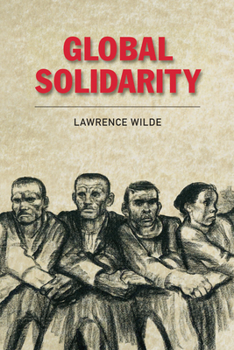Global Solidarity
Select Format
Select Condition 
Book Overview
Explores the potential of globalisation to provide the conditions for a harmonious global community.
Solidarity has been a mobilising word since the mid-19th century, conjuring images of united action in pursuit of social justice. Lawrence Wilde explores this concept and raises the question of whether solidarity among strangers is a meaningful aspiration in our globalising age. He critically examines the work of Rorty, Honneth, Touraine, Habermas and Fraser and shows how solidarity relates to nationalism, gender, religion and culture. Looking to the future, he explores the politics of global solidarity and the conditions required for its development.
Format:Hardcover
Language:English
ISBN:0748640290
ISBN13:9780748640294
Release Date:January 2013
Publisher:Edinburgh University Press
Length:304 Pages
Weight:1.32 lbs.
Dimensions:0.9" x 6.4" x 9.3"
Grade Range:Postsecondary and higher
Related Subjects
Political Science Politics & Social Sciences Self Help Self-Help Self-Help & PsychologyCustomer Reviews
0 rating





